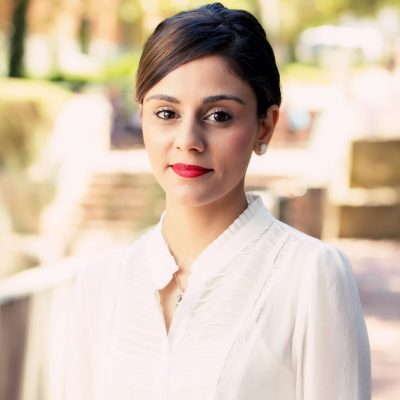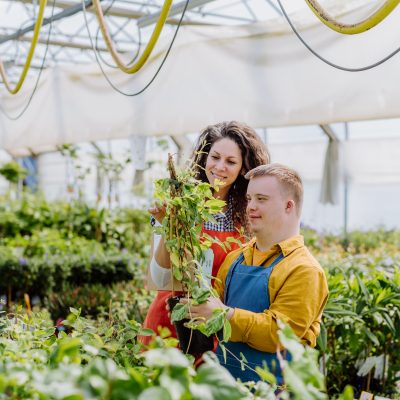Jaslin Kalsi, BCEC PhD scholar, shares her research into the different household entitlements of Australian men and women

Jaslin Kalsi is originally from Kenya and was awarded a BCEC PhD Scholarship in 2016. Jaslin shares insights into her journey conducting research within the Centre over the past year.
Why did you choose a career path in academia?
After graduating from university in 2011, I somehow found myself teaching. Teaching was never something I dreamed of doing, but I was asked to teach a few economics classes and it wasn’t long before I discovered that I loved working in academia!
Tell us why you chose to apply for the BCEC PhD Scholarship.
I decided to apply for the BCEC PhD Scholarship because BCEC had a large body of recent work focusing specifically on gender equity, and it fit really well with the subject I wanted to pursue. I am very passionate and interested in studying social issues, particularly gender inequality.
Tell us about something interesting you’re working on.
My research, An Australian perspective on Intra-household Entitlement and Gender Inequality, examines the difference in household entitlements Australian men and women receive, while they’re in a relationship. The term ‘entitlements’ refers to the command over resources within the household. Many policies are made on the assumption that household finances are pooled and both partners receive the same financial benefit from household income regardless of whether each partner contributes in terms of financial contributions or non-financial contributions such as household work. However in many instances we find entitlements are often gendered. The study examines the factors that affect the entitlements household members receive, depending on their gender by uncovering the various factors drivers and the contrasting perceptions of contributions and interests of partners in couple relationships.
This is quite a sensitive topic and while research on this has been done in the United Kingdom, there is little Australian research into this subject. It is a research area I’m passionate about and I think it is important to understand how treating men and women differently at home can transition into the workplace.
Outside of work, I have started advocating for gender equality, and have been fortunate to meet like-minded people from all over the world. I also helped co-found UN Women’s I am (wo)man campaign. Involving myself in opportunities like these helps me to passionately strive toward my goals.
What are some of the challenges you’ve had to face and what got you through?
While I loved teaching, I also wanted to try working in the corporate sector, because that was the original career path I envisioned.
In 2014, I landed my first corporate role within a well-known insurance company and before I knew it, I was sitting in an office working on data models for new health insurance policies. I didn’t find this job stimulating enough though. A few weeks into the job I was already feeling like I was losing myself, and I soon returned to research and teaching.
I wanted to do something more proactive to help people. I was instantly reminded of the feeling of fulfillment you receive when you are adding to someone’s future; whether it is in the form of teaching or studying social problems and helping identify ways in which we can help understand and contribute towards improving predicaments.
I have been blessed with amazing parents who always believe in me and taught me to be courageous and follow my dreams, no matter how out of reach they may feel. I owe all my successes to my mum and dad! I wouldn’t be where I am without them!
One of my favourite quotes is by Steve Jobs: “people who are crazy enough to think they can change the world are the ones that do.” It is hard work to “change the world”, and let’s face it, it is a little far-fetched for me to “change the world” on my own! But what I can do is “cast a stone across the water to create many ripples”. Along the journey, it is inevitable that we will come across obstacles, but when they arise, we must refuse to give up and instead use them as motivation. To me, when these challenges arise I like to think of them as lessons and take the positives out of them!
What support do you have to enable the success of your study within research?
I have a great team to support me. I am incredibly lucky to have Professor Siobhan Austen (Curtin University) as my supervisor. She has a wealth of knowledge and expertise in gender and diversity. My mentor within BCEC, Senior Research Fellow Dr Astghik Mavisakalyan, has brought so much knowledge to my research and is helping me with my PhD project. I am also grateful to have BCEC Research Fellow Dr Richard Seymour as another one of my supervisors. He is brilliantly skilled in data modelling and econometrics, and is also very patient with me!
You’re working part-time, too. How do you juggle everything?
Yes, I am currently teaching the second year unit Macroeconomics, and Economics 1000 for first year students. I am also a research assistant with the Women in Social and Economic Research (WiSER) cluster with Professor Siobhan Austen.
I keep a balanced and well-scheduled lifestyle. I spend time with friends and family, and because I enjoy teaching, I don’t consider it to be work. I think as long as you love what you do, you will be fine.
What advice or words of wisdom would you share with others interested in applying for the BCEC PhD Scholarship?
Try your best to keep balanced and focused. Surround yourself with positive people and with family and friends. Research can be hard work so you will need a strong support system. I have had my fair share of challenges and I know I still have many more to come, but I embrace them as a learning experience.
Most importantly, choose a topic you are passionate about! Your motivation to get up and come to university depends on your love for your research interest – trust me on this!




